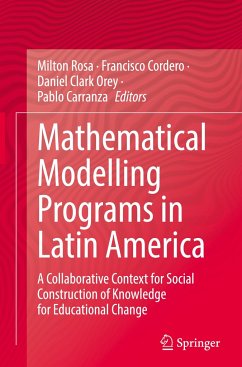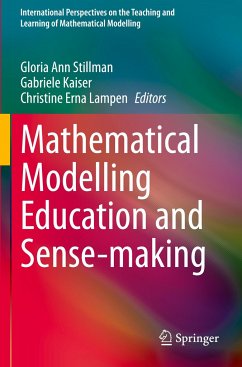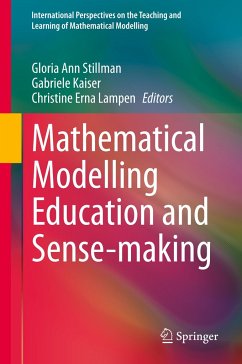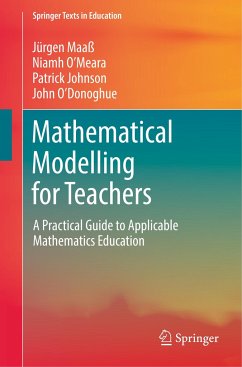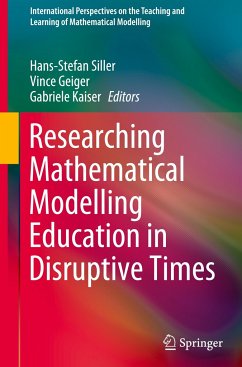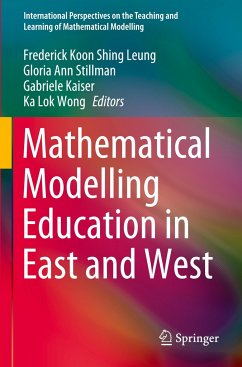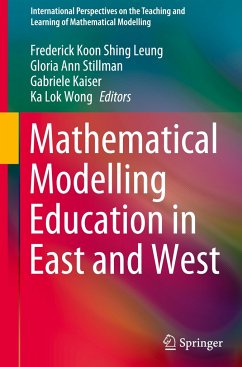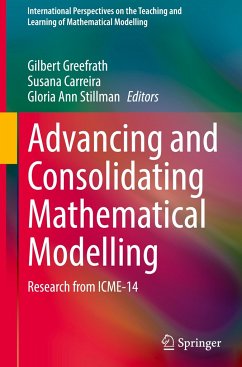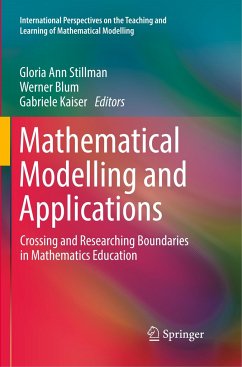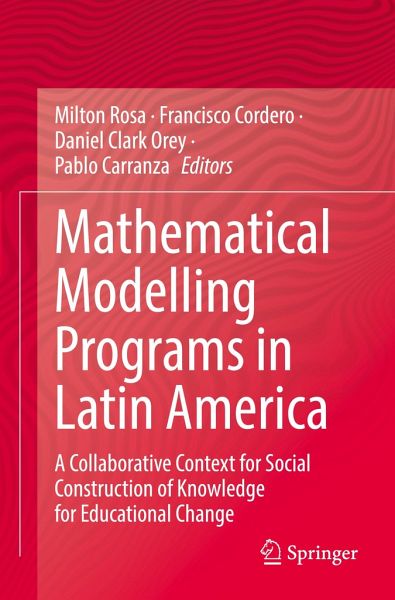
Mathematical Modelling Programs in Latin America
A Collaborative Context for Social Construction of Knowledge for Educational Change
Herausgegeben: Rosa, Milton; Cordero, Francisco; Orey, Daniel Clark; Carranza, Pablo
Versandkostenfrei!
Versandfertig in 6-10 Tagen
112,99 €
inkl. MwSt.

PAYBACK Punkte
56 °P sammeln!
This book is about the unique, sophisticated, and rigorous study of mathematics in Latin America developed over centuries of cultural exchange between Europe, North, and South America. More specifically, the book explores the tradition of mathematical modelling, introduced a century ago. This modelling was adapted to assist members of distinct communities to draw information about their own realities through the elaboration of representations, which generate mathematical knowledge that deals with creativity and invention. The book provides empirical evidence that a category of mathematical mod...
This book is about the unique, sophisticated, and rigorous study of mathematics in Latin America developed over centuries of cultural exchange between Europe, North, and South America. More specifically, the book explores the tradition of mathematical modelling, introduced a century ago. This modelling was adapted to assist members of distinct communities to draw information about their own realities through the elaboration of representations, which generate mathematical knowledge that deals with creativity and invention. The book provides empirical evidence that a category of mathematical modelling developed in Latin America assesses the horizontal and reciprocal relations between mathematics (school/non-school contexts) and the real world. These relations provide an epistemological and ontological change, where mathematical knowledge of the others is recognized on a horizontal plane. Further, they oblige mathematics teachers and students to understand as a community of knowledge thatbuilds their own mathematical categories of their environment governed by the reciprocal relationships between academic knowledge and functional knowledge. The dimensions of the relationships make up a frame of reference that guides educational change in mathematics. The book presents an inquiry-based approach of three Latin American modelling programs: ethnomodelling, transversality of knowledge, and reasoned decision-making. Each one, with its respective theoretical and methodological foundations related to ethnomathematics and mathematical modelling, socioepistemology, and the attribution of meaning to learning. Undoubtedly, the three mathematical modelling programs, independently, provide educational gains, each with its levels of specificity and loyal to its philosophical, theoretical, and methodological principles. However, the book places them together, organized by axes, to define a corpus of mathematical knowledge that envisions profound educational change through the development of different approaches of mathematical modelling. The authors of the 18 chapters in this book, who represent the diversity of Latin America, are from eight countries: Argentina, Brazil, Chile, Colombia, Costa Rica, Cuba, Ecuador, Honduras, and Mexico. They were invited to share their ideas, perspectives, and discuss investigations that represent a rich sample of three Latin American perspectives on mathematical modelling.



